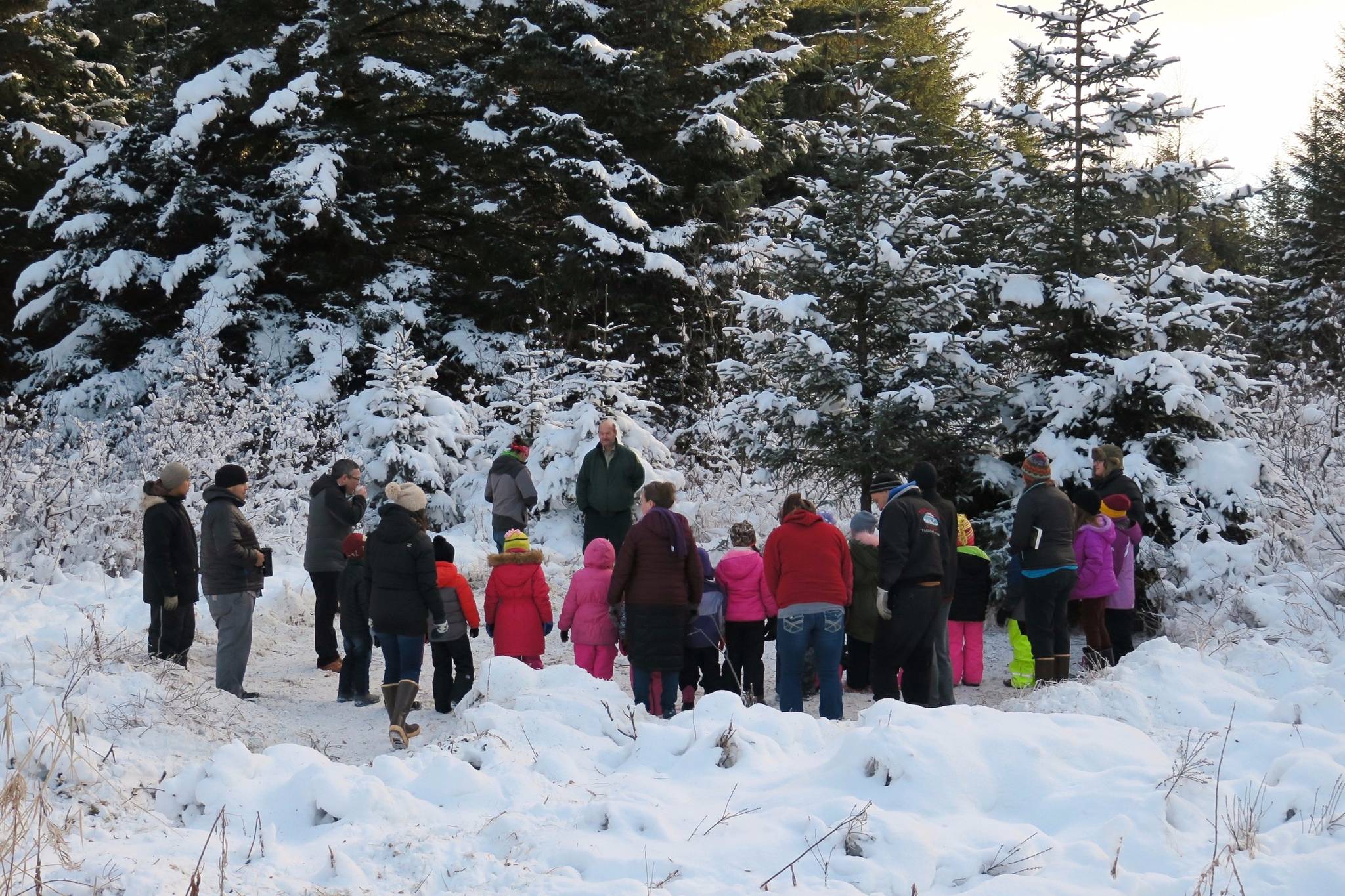As we head into the holiday season, I am reminded how much I appreciate the support of family, friends and good neighbors. As a large state with a relatively small, dispersed population, Alaskans pride ourselves in being can-do and self-reliant. Yet we also realize more can be achieved by working together. In Tlingit, this is called woosh.ji.een. In a spirit of appreciation and goodwill, we at the Forest Service wish to recognize and thank our good neighbors for the work we do together.
To celebrate cooperation and partnerships this holiday season, we are supplying a holiday tree to the Governor’s House to highlight the special relationships between the Forest Service, the Alaska Native community, the State of Alaska and rural communities. The tree will be on public display at the Governor’s holiday open house today. The tree is a Sitka spruce from Yakutat and was harvested with a special blessing from the Yakutat Tlingit Tribe to give it back to the earth. Ornaments for the tree were handcrafted by school children from Yakutat and residents of the Pioneer Home in Juneau.
Speaking of being good neighbors, let me give you a glimpse of some of the ways we are working closely with others to improve the lives of all Alaskans. The Forest Service has worked together with the state of Alaska on a young growth timber sale near Edna Bay where the state prepared, awarde, and will administer the timber sale on National Forest System lands. We work with the state and other federal agencies on joint wildland firefighting efforts, protecting our forests for industries and communities that rely on them for healthy watersheds, timber, recreation and jobs. Our state and private forestry program works with land owners across ownership boundaries statewide to research and combat invasions of insects and disease on Alaska’s vast landscapes and to perform forest inventory work. We provide technical assistance and grants to assist rural communities in taking charge of heating their public buildings with local wood to achieve more reliable energy and provide local jobs. Our Pacific Northwest Research Station and the Forestry Sciences Laboratories work worldwide with other researchers to share scientific findings about everything from climate to new ways to use forest-products in building materials and more efficient methods of heating homes and businesses.
Our Tribal Relations Program works hand-in-hand with Alaska Native tribes and corporations whose members have resided on Alaska’s lands since time immemorial, and who carry forward the traditional knowledge about Alaska’s unique forests, wildlife and fisheries. We partner with tribes on workforce development training to put that traditional knowledge to work, recognizing the original stewards of our state’s natural resources. We protect and preserve priceless cultural heritage objects and sites in areas across the forests in partnership with tribal organizations, local historical societies and nonprofit groups. We have a seat on Alaska’s Federal Subsistence Board, and we share scientific research with other federal and state agencies so Alaska’s forests are managed to support healthy populations of fish and wildlife.
We operate the Chugach National Forest Avalanche Information Center, with help from the Friends of the Chugach, to provide critical safety information about avalanche danger at Southcentral Alaska’s Turnagain Pass area. Our Law Enforcement and Investigations teams work tirelessly to keep people using our campgrounds and recreational areas safe from hazards and harm, often in partnership with other federal law enforcement, Alaska State Troopers and local municipal law enforcement agencies.
We work with the National Forest Foundation, which established the Alaska Forest Fund to leverage private funding to support work on forest and stream restoration, trails and cabins. We work with State and municipal governments to maintain infrastructure such as bridges and roads that sometimes provide the only access to National Forest System lands for citizens to benefit from economic opportunities such as fishing, guiding, and seafood processing. We maintain other infrastructure such as recreational cabins, trails, shelters and docks for guided outdoor experiences.
Every day, citizens help us focus our work by giving input on projects, from timber harvest to facility planning, through resource advisory committees and other public engagement opportunities.
We are grateful to the communities in Alaska and our partners for Woosh.ji.een, working together with us — achieving more with the help of our good neighbors.
• Beth Pendleton is the regional forester for the U.S. Forest Service’s Alaska region.

